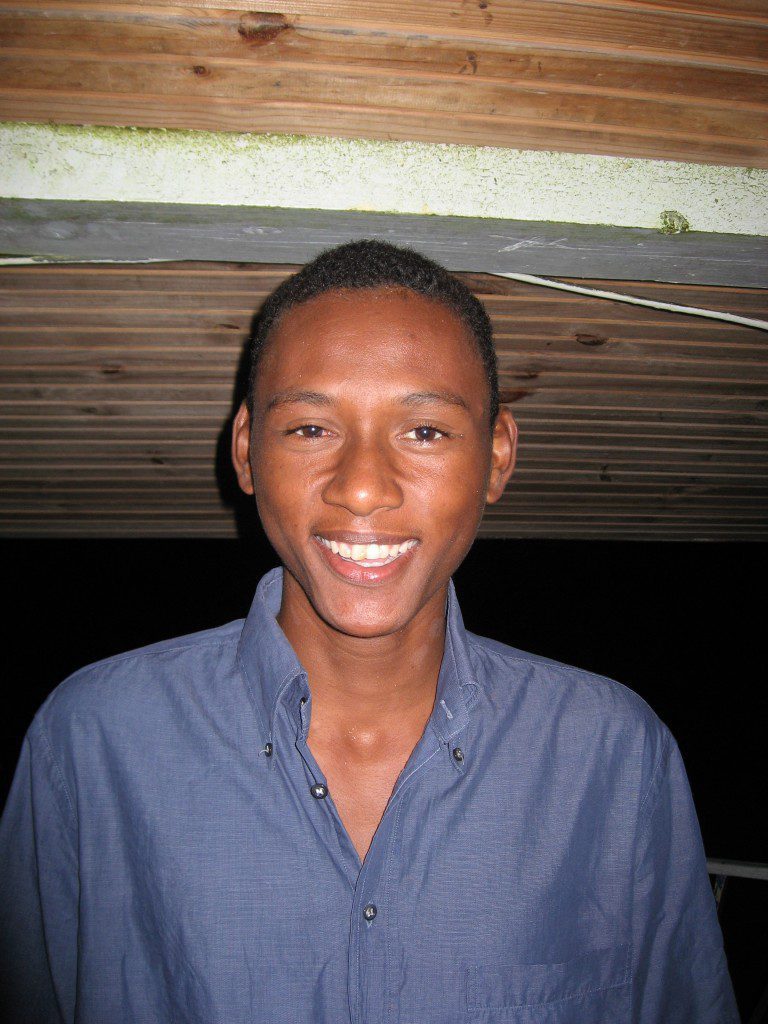In the eighth instalment in our series of Q&As with Blue Ventures staff, we ask Gildas Andriamalala, our Assistant Conservation Coordinator, some searching questions about science, conservation and superpowers…
What is your background?
I spent four years of my life studying private law and criminal science at university. Then, I realised that it was not what I really wanted to do with my life as a young man. Instead of following a career in law, I felt the urge to understand more about the issues facing poor communities in my country and focus on social science and rural development in general. Blue Ventures helped me to achieve that through its focus on community conservation. I remember back in 2006 when I started with Blue Ventures in Andavadoaka, some of my friends even said that apparently Blue Ventures was only for marine scientists! But I found out that it wasn’t true; there is more to it than that in conservation.
Why do you do what you do?
The whole thing about me wanting to work in conservation started back in 2006, when I was conducting a baseline socio-economic survey for the Velondriake Locally Managed Marine Area (LMMA) as a part time job with Blue Ventures. Through daily interactions with the communities I gained insight into people’s lives, and have come to fully understand the high level of interaction between these communities and natural resources, as well as the challenges they are facing. Since then, I committed myself to fight these challenges and I don’t think that I have any regrets about my choice.
What is the best/worst thing about being a conservation scientist/working in conservation?
The best thing about working in conservation for me is the vision that all of us are hoping to achieve. A beautiful sea full of fish, a forest full of trees and birds, a savanna full of animals, a land full of clean water….and finally, people living in harmony with those environments. What else do we need if our vision comes true? The worst thing for me is to realise that we can’t change everything, there is always a limit and there are always obstacles you have to overcome. I just do my best so that I can be proud of any success I achieve.
What do you enjoy most about your job?
The thing I enjoy the most is the fact that I have always worked very closely with communities in the field to make the necessary changes together, while learning from each other. By forging lasting relationships and gaining their trust, I am able to make a real difference and allow them to help themselves. No matter how long you go away, community members will remember your name, they will tell stories about what you did for them and you will always be welcomed if you go back.
What is your favorite species or group of species and why?
I’m not sure I can really answer this question properly but if I have to choose, I would say sharks. Honestly, I have never seen one underwater because I have never dived and I’m definitely scared of them!! However, I have seen some caught on the beach and they are the kind of creature I could stare at for hours. It really amazes me how much I feel just from looking at their faces and teeth that they are not the kind of animal to play with! But, they are still my favorite because of their power in the sea.
What would your science superpower be?
I really want to be a modern version of Poseidon, the Greek God of the Sea. With my power, I could control how humans use the ocean better than any legislation in this world and make sure that there will be something left for their children and future generations.
What is one of the strangest things that has happened to you while working on conservation?
Getting accidentally intoxicated from drinking Kava, the Fijian traditional drink with some surprising side effects (it is a mild hallucinogenic), when I was visiting a small island to learn about LMMA’s in Fiji back in 2009. It was one of those occasions where it would have been rude to refuse and all the Fijian guys around me were very eager for me to try their local brew. The conversation with the village chief was amazing, and I found out that there are even similarities between some Malagasy and Fijian words for marine resources, but the Kava was way too much and landed me in bed. I can still remember how I felt that time every time I talk about it!!


